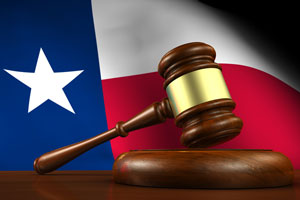On occasion, a party in a case will act as his or her own expert witness. When a party proposes to testify as an expert, is the opposing party entitled to obtain communications between the party and the party’s attorney concerning the expert testimony?
Certain communications between a testifying expert and the attorney who retained the expert are discoverable. On the other hand, communications between an attorney and a client are privileged. Which rule controls when the client testifies as an expert?
The Texas Supreme Court tackled that question in In re City of Dickinson. The decision comes down on the side of attorney-client privilege.
Facts of the Case
Hurricane Ike damaged property owned by the City of Dickinson. The city made a claim under its windstorm insurance policy. The city sued Texas Windstorm Insurance Association when the company failed to pay all the insurance proceeds that the city demanded.
Texas Windstorm relied on the affidavit of its corporate representative and senior claims examiner, Paul Strickland, in opposing a summary judgment motion. The affidavit stated facts and also expressed expert opinions. Strickland testified in a deposition that the affidavit had gone through a process of revision based on emails with Texas Windstorm’s attorney.
The city demanded production of those emails, citing a Texas discovery rule that allows a party to obtain all documents “provided to, reviewed by, or prepared by” an expert “in anticipation of a testifying expert’s testimony.” That rule would typically require production of written communications from a party’s lawyer that the expert reviews before preparing a report or affidavit.
Texas Windstorm resisted production of the documents on the ground of attorney-client privilege. Texas Windstorm’s attorney argued that Strickland was the liaison between Texas Windstorm and its law firm. In counsel’s view, the emails were privileged communications between the law firm and its client.
The trial court ruled that Texas Windstorm waived attorney-client privilege by using an employee of its client as an expert witness. Texas Windstorm challenged that ruling with a writ of mandamus. The Texas Court of Appeals ruled that the emails were privileged.
The city petitioned the Texas Supreme Court for mandamus, arguing that the court of appeals abused its discretion in failing to apply clear discovery rules to experts who are also parties to litigation. The conflict between expert discovery rules and attorney-client privilege had not previously been resolved in Texas.
Texas Supreme Court’s Legal Analysis
The supreme court noted that a comment to the expert discovery rule suggested that the work-product privilege does not shield materials prepared by an attorney from discovery when they are shared with an expert. However, the comment suggested that other privileges might still apply.
The supreme court observed that the rule governing discovery from expert witnesses was subject to a broader discovery rule that allows discovery of all materials that are relevant and not privileged. The expert discovery rule creates no explicit exception to attorney-client privilege. Reading the rules together suggests that no discovery of privileged materials (except those covered by work-product privilege) can be obtained from experts.
A question left open by that analysis, however, is whether a client waives attorney-client privilege by designating its own employee as an expert. The expert discovery rule makes no distinction between experts who are retained and those who are employed by a party. The failure to make that distinction might imply that an expert who is employed by a party should have no greater right to shield documents from discovery than an expert who is retained by a party.
Parties are deemed to waive attorney-client privilege when they knowingly disclose facts that would otherwise be privileged. The city argued that Texas Windstorm waived the privilege by using an expert with knowledge that the expert would be subject to the discovery rules that apply to testifying experts.
The supreme court rejected that argument. The rule states that a party “may request” disclosure from experts but does not require the expert to disclose anything. The supreme court decide that the city was entitled to request the emails but Texas Windstorm was not required to provide emails if they were protected by an applicable privilege. Of course, the rule writers would not have compelled parties to make discovery requests, so the use of the phrase “may request” rather than “must request” probably has nothing to do with the obligation of the opposing party to respond to the request.
Texas Supreme Court’s Policy Analysis
The answer comes down to a question of competing values. Do we want parties to give up the important benefits of attorney-client privilege when they use their employees as expert witnesses? Do we want businesses to shield themselves from discovery of materials that influence expert opinions by using their own employees as experts?
To the extent that the Texas Supreme Court engaged in a policy analysis, it focused on the attorney-client privilege as “quintessentially imperative” to the legal system. The privilege assures that lawyers can give candid advice to their clients. While that might be a quintessential imperative, the privilege also assures that the opposing party will never learn the extent to which a lawyer shaped the expert’s opinions when the expert is the lawyer’s client.
Fortunately, while the court’s decision frustrates discovery of attorney communications that may influence or dictate an expert’s opinion when the expert is employed by a party, that loss of discovery is mitigated by the reality that judges and juries recognize the inherent bias of a party’s employee. Parties who use their own employees as experts take a substantial risk thata judge or jury will not regard the employee as a credible witness. Retaining an independent expert reduces the risk that a jury will see the expert as biased. For that reason, parties do not usually use their own employees as critical expert witnesses in litigation.




